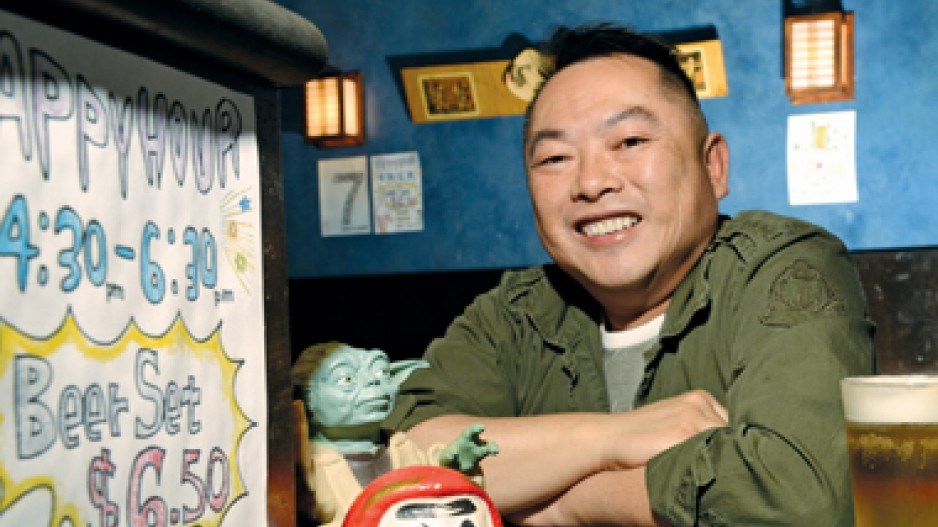Set 'em up, Christy Clark. B.C.'s hospitality industry wants another round of changes to what the premier has called the province's "antiquated liquor laws."
To that end, Victoria will soon start consultations with industry on how to modernize its liquor legislation.
Legalizing happy hours so restaurant and bar owners can change the prices of drinks during the day is one of the proposals the B.C. government is considering.
"The issue of happy hours in B.C. is something we are interested in hearing about as part of our public consultation process," Attorney General Suzanne Anton told Business in Vancouver.
Clark appointed John Yap as a parliamentary secretary focused on liquor policy reform. Yap's mandate, according to Clark, is to "lead the stakeholder consultation on modernizing B.C.'s antiquated liquor laws and recommend improvements to the minister to take to cabinet."
Unlike their counterparts in west coast states and most provinces, B.C. restaurant and bar owners are prohibited from offering drink specials during times when business is slow.
"Too much government control is not a good thing," said Toptable Group owner Jack Evrensel, who operates five restaurants: Cin Cin, Blue Water Café, West, Thierry and Araxi.
He said restaurant owners should have the freedom to offer customers specials on drinks as they do with their food.
Most of Evrensel's alcohol sales are for wine, partly because his bistros are upscale.
Those who own more casual eateries are more enthusiastic about happy hours.
Many of those establishments now advertise happy hours that involve free or low-cost food during certain hours if a drink is bought.
"Having the freedom to do a happy-hour promotion for drinks [without food] would be good for all restaurants," said Tinn Chan, who owns Gyoza King downtown, Gyo-o in Richmond and G-Be in Burnaby.
Harutoshi Morinaga, who owns Ramen Sanpachi near the corner of Bute and Robson streets, agreed. He said margins are so tight that restaurant owners need more options to help them fill their premises with diners during off-peak times.
Ian Tostenson, BC Restaurant and Foodservices Association's CEO, has been informally surveying BCRFA members for their thoughts on happy hours. He believes the consensus is that it would be good for the industry.
"It accomplishes incremental business," said Tostenson, who recently returned from Seattle and was amazed at how many restaurants offered lower drink prices for a few hours in late afternoon or early evening.
"They're not serving people to the point of inebriation because they're still subject to the same driving regulations that we are.
"Tourists come here and ask where there's a happy hour, and we have to say there aren't any. Having happy hours raises opportunities so we have to look at that." •
Wineries push for law to allow secondary tasting room
B.C. winemakers are counting on a powerful ally in their push to have Victoria allow them to operate a second tasting room where they can sell direct to the public.
Those transactions, dubbed farm gate sales, are winery owners’ most lucrative revenue stream.
“Christy Clark is the first premier to represent a B.C. wine region constituency since the rise of the province’s wine industry,” said Vintage Law Group partner Mark Hicken. “One of the prominent issues for winery owners in her riding is the ability to have a second tasting room.”
Winery owners are currently allowed to have only one tasting room, and it must be at the site where they manufacture the wine.
If they could open a second tasting room, winery owners could locate their tasting rooms in a cluster in an urban centre. The resulting tourist hub would allow customers to walk between tasting rooms rather than having to drive, which could cut down on potential drinking and driving.
Small winemakers could also jointly open a single tasting room.
“A small player like ourselves couldn’t afford to rent a tasting room given our volume but it would be great if three or four of us or the whole winery association could get together and use one winery licence for the room,” said Stag’s Hollow Winery owner Larry Gerelus. “That would be very beneficial to small wineries.”




